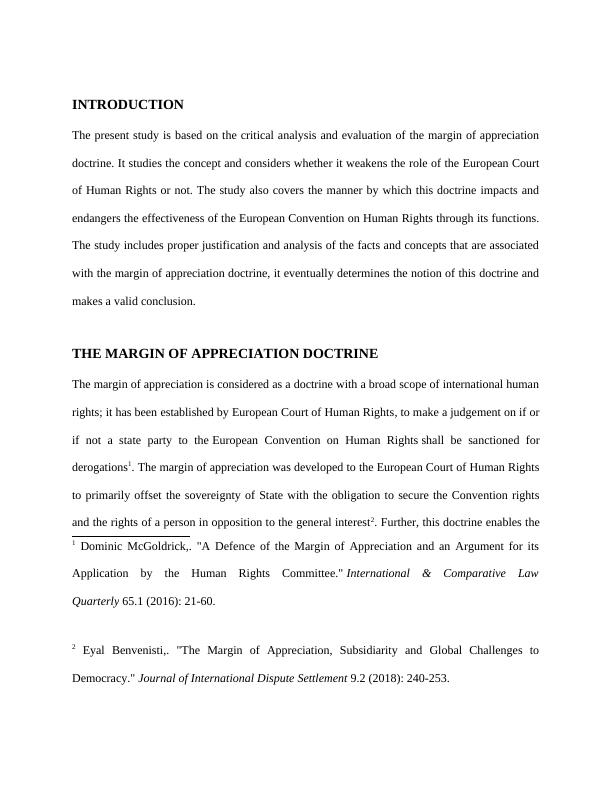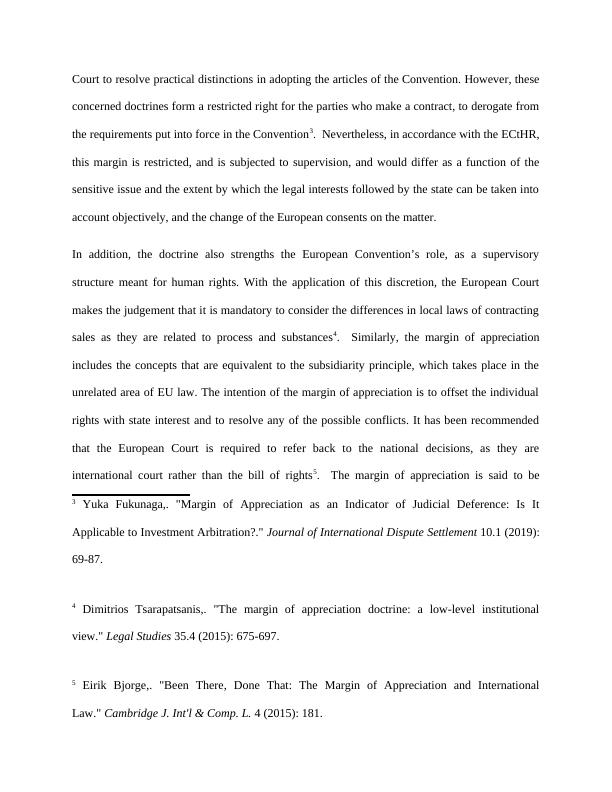Margin of Appreciation Doctrine in European Human Rights Law
16 Pages4277 Words477 Views
Added on 2023-04-25
About This Document
This study critically analyzes the margin of appreciation doctrine in European Human Rights Law and its impact on the effectiveness of the European Convention on Human Rights. It covers the concept, justification, and analysis of the doctrine and its impact on the role of the European Court of Human Rights.
Margin of Appreciation Doctrine in European Human Rights Law
Added on 2023-04-25
ShareRelated Documents
End of preview
Want to access all the pages? Upload your documents or become a member.
Business Law : Sources of Law Assignment
|13
|3655
|104
Business Law Types of Sources - Assignment
|11
|3706
|403
The Assignment on Equity and Trust
|12
|3353
|17
Business Law Assignment | Mercantile Law Assignment
|12
|3198
|26
European Law Assignment Solved
|8
|2511
|275
Breaches of Human Rights Convention in Grainville Fire Incident
|12
|3996
|373




